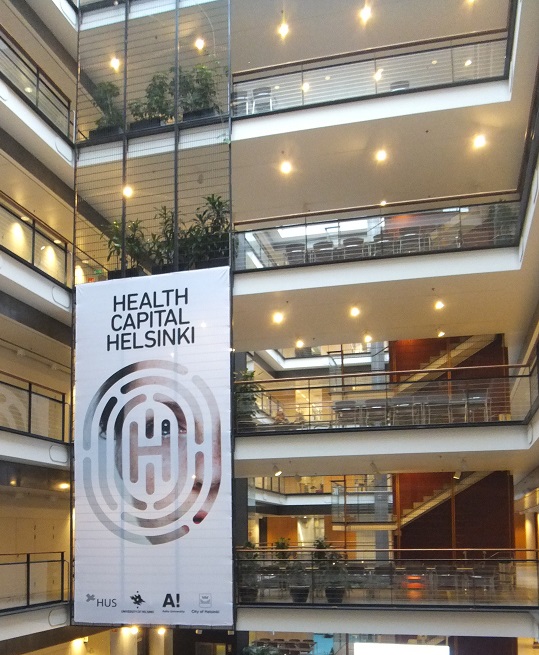Displaying present location in the site.
ICT Global Trend Part6-2
Healthcare x AI in Finland (2/2)
This article is written by Ms. Kazuko YUMA , Chief Fellow, Institute for International Socio-Economic Studies(NEC Group)
Targeting at development of innovative AI
In 2017 the Technical Research Center of Finland (VTT) published Strategic Research Agenda (SRA) “AI for Good Life” in order that the study and research is progressed nationally on the utilization of AI in the area of healthcare. The budget is planned and allocated to the research and study according to the application area and the priority of research in the area of healthcare so specified in the agenda.
Business Finland (reorganized in January 2018 from the former Finnish Technology Agency TEKES) has already allocated about 100 million Euro for the research and study of AI in 4 years, and, the budget allocated for the area of healthcare represent substantial portion among others.
Model to assist the medical care
One of the characteristics of Finnish model of utilization of AI in the area of healthcare is to create innovation starting with open ecosystem in cooperation with companies including foreign firms. Business Finland signed the memorandum of understanding for 5-years collaboration with IBM Finland in 2017 and “Watson Health Center” was opened immediately in Helsinki. They are working with the hospital district of Helsinki and Uusimaa (HUS) for 3 AI projects, namely ①detection of Cerebral hemorrhage by image analysis ②personalized care of cancer ③Earlier identification of serious bacterial infection of premature babies.
"CleverHealth Network" which HUS and 12 companies (IBM, GE Healthcare, Nokia, etc) participated is developing a support model for treatment of gestational diabetes by AI technology from March 2018.Uplifting the expertise of domestic SMEs
The Finnish government is also aimed at uplifting the expertise of domestic SMEs in the collaborative work with foreign firms who are strategically invited for the projects and authorized to utilize healthcare data and information open for the purpose.
In Finland many start-up companies have been successively born. Valuecode Oy is the one among them who develop medical software robot named Forsante offering comprehensive solutions for warfarin therapy effective against cardiac infarction. Warfarin is to prevent harmful blood clots, but, the warfarin therapy is greatly different from individual to individual and is time-taking to arrange sensitive adjustment for the difference.
In order to make the right therapy for the individual frequent blood test at least every 1-2 months are mandatory and based on the test results the dose of warfarin is adjusted by doctor accordingly.
Valuecode Oy employed AI technology to analyze a large amount of medical data and information for the patients and tests, and, developed to offer automatic therapy solution for 85% of the patients with stable health conditions, and, to offer the therapy solutions for remaining 15% of the patients with unstable health conditions subject to final decision by the appropriate doctor.
Their solution is authorized with CE marking by EU authorities to meet high safety, health, and environmental protection requirements and actually is adopted already by several hospitals in Finland. We may expect the future success of this Valuecode Oy.Utilization of Data and Information
In order to progress positive development of AI technology in the healthcare area it is essential that there is basic system to allow the utilization of highly qualified and large amount of medical data and information.
In Finland the government is reviewing and enacting the domestic laws and regulations to secure the smooth secondary use of healthcare data and information while complying with EU GDPR (General Data Protection Regulation) effective from May this year.
The Finnish Government is endeavoring to show that Finland is best suited for whatever business utilizing healthcare data and information.
In Japan the Act Regarding Anonymized Medical Data to Contribute to R&D in the Medical Field (Next Generation Medical Infrastructure Act) was enacted to define and specify the secondary use of medical data and information. There are, however, many further actions needed for such area as healthcare ID system, national infrastructure and system to exchange various data about health, medical and log-term care.
Proper care and consideration are definitely needed to protect privacy, but, the important point is how we can establish convenient and user-friendly system and structure for the best possible use of valuable healthcare data and information, then, Japan can stay in the global competition in this area.
